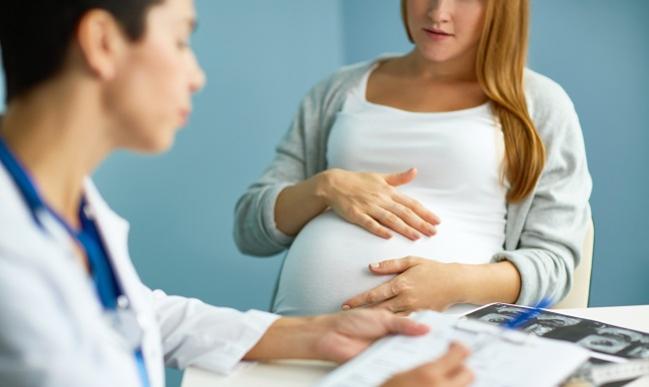Closer Follow-up of Preeclampsia in Pregnancy Needed to Reduce Risk of Stroke
Paying attention to modifiable risk factors and screening for bleeding disorders and blood clots may aid prevention efforts, researchers say.

Stroke in women who develop preeclampsia during pregnancy is relatively rare, but hypertension, urinary tract infections, and clotting abnormalities all significantly increase risk, new data suggest. The majority of strokes that occur are in the postpartum period, researchers found, indicating the need to be more vigilant of a mother’s health after birth.
“Women who have preeclampsia have about six times the risk of stroke during pregnancy and postpartum compared to pregnant women who don’t have preeclampsia,” said lead author Eliza C. Miller, MD (New York-Presbyterian Hospital/Columbia University Medical Center, NY), in an interview with TCTMD. “When women with preeclampsia have a stroke, their strokes are severe. In this cohort, more than one in 10 died. Even if they survive the stroke, many of them have long-term disabilities.”
Nearly half of the strokes were hemorrhagic, and two-thirds occurred postpartum.
Navigating a ‘Vulnerable Time’
“That postpartum period is really a vulnerable time for women,” Miller observed. “They are not getting the kind of medical attention that they got during their pregnancy; they just had a baby and there is so much else going on in their lives. Many times they don’t come back for their follow-up, either because they’re not given an appointment or they don’t call for an appointment,” she said. “We cannot let these women just fall off the radar.”
The study, published today in Stroke, examined data from 2003 through 2012 on more than 3 million women in the New York State Department of Health inpatient database who were admitted to a hospital for any reason. Of these, 88,857 had preeclampsia and 197 (0.2%) had pregnancy-associated stroke, resulting in an incidence of stroke in the preeclampsia population of 222 in 100,000.
We cannot let these women just fall off the radar. Eliza C. Miller
Compared with women with preeclampsia who did not have a stroke, those who did were older and more often black. After adjustment for other risk factors, having severe preeclampsia or eclampsia was associated with a more than sevenfold increase in risk of stroke, while infections—most commonly of the genitourinary tract—were associated with a threefold risk, as were history of chronic hypertension, prothrombotic state, and coagulopathies. There were no differences in stroke risk between women who experienced labor and those who had a cesarean delivery.
More Awareness Needed
“Pregnancy and stroke risk is an area that is too infrequently recognized,” said Emil L. Matarese, MD (Capital Institute for Neurosciences, Hopewell, NJ), commenting on the study for TCTMD. A main message of the study, he said, is that any neurologic symptom during and immediately after pregnancy should be taken seriously by patients and their physicians.
“This study helps us to see some markers that can section out those individuals at higher risk of stroke than others. Urinary tract infections, for example, are an easy thing to treat, and something OBGYNs need to screen for more often,” Matarese urged. “The patient, too, needs to be informed that something as simple as an infection could put them at risk for more serious complications, including stroke.” Although the exact mechanism by which infection might trigger stroke is unknown, studies suggest that in the setting of preeclampsia, an infection could exacerbate inflammation and coagulopathy, Miller and colleagues say.
Matarese added that the increased risk associated with clotting abnormalities found in the study is in line with what is known about stroke incidence in younger people, who tend not to have classic stroke risk factors. He added that during the postpartum period when woman are in a hypercoagulable state, preexisting clotting issues can further increase their stroke risk.
Both Miller and Matarese said the study highlights the importance of addressing all modifiable risk factors and maintaining contact with the patient through delivery.
“There’s evidence that women who have had preeclampsia in the past should be on aspirin for subsequent pregnancies,” Miller noted. “We also know that women who have had preeclampsia are at higher risk for stroke later in life. This is a huge risk factor specific to women that has not been a major area of focus, but I really think it needs to be.”
L.A. McKeown is a Senior Medical Journalist for TCTMD, the Section Editor of CV Team Forum, and Senior Medical…
Read Full BioSources
Miller EC, Gatollari HJ, Too G, et al. Risk factors for pregnancy-associated stroke in women with preeclampsia. Stroke. 2017;Epub ahead of print.
Disclosures
- Miller and Matarese report no relevant conflicts of interest.


Comments